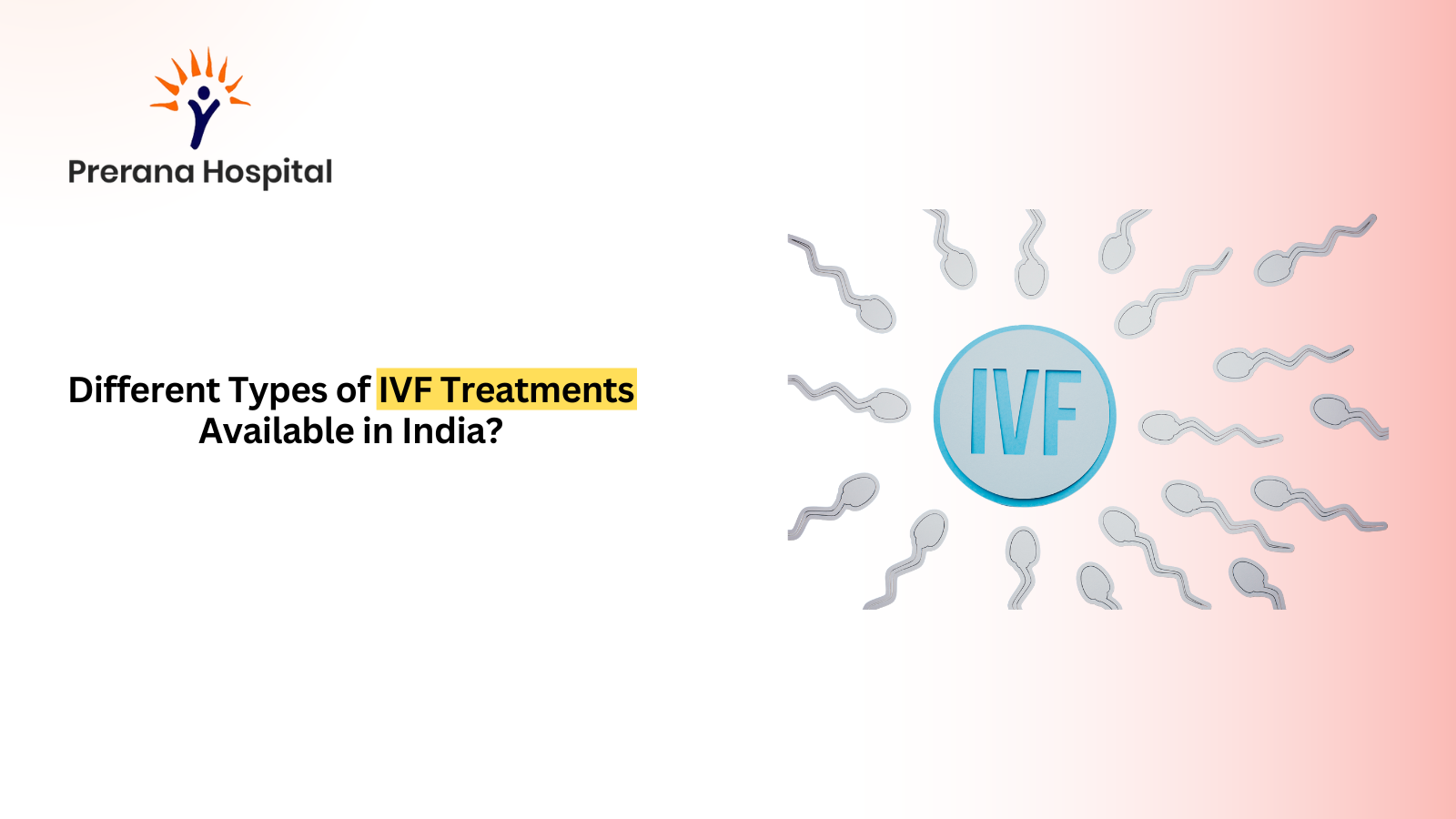

Please call +91 72042 70871 for outpatient appointments. The hospital is available for emergency 24/7.


Did you know that 27.5 million couples in India struggle with infertility? As the desire for parenthood grows, so does the demand for effective fertility solutions. In recent years, In Vitro Fertilisation (IVF) has emerged as a promising treatment for countless individuals and couples. Around 2-2.5 lakh IVF cycles are being performed annually in India. IVF is becoming increasingly personalised, with advancements in technology that enable the treatment to address diverse fertility challenges from low sperm count to blocked or damaged fallopian tubes and poor sperm motility. However, with numerous IVF treatment options available, selecting the right one can seem daunting.
This blog discusses the diverse range of IVF treatments in India, enabling prospective parents to make informed decisions about their fertility journey.
With IVF, the chances of conception increase significantly, helping those struggling with infertility and seeking to build their families. While traditional IVF is a popular option, various advancements in IVF treatments are now available, including minimal stimulation IVF, natural cycle IVF, ICSI, etc.
In Vitro Fertilisation (IVF) helps women conceive a child. The process involves combining eggs and sperm outside the human body, in a laboratory, as follows:
IVF is not a one-size-fits-all solution, as every individual or couple's fertility journey is unique, with distinct needs, health conditions, and infertility causes. As a result, various IVF treatments have been developed to cater to these diverse requirements, including conventional IVF, minimal stimulation IVF, Intracytoplasmic Sperm Injection (ICSI), etc.
While conventional IVF remains the preferred option for women above 35 years old, ICSI is typically recommended for men with compromised sperm motility or low sperm count. So, tailoring treatment types to individual needs is crucial to optimising success rates and increasing their chances of conception.
Here are some common IVF treatments available in India to choose from:
Conventional IVF (standard IVF) is the most widely used treatment, offering a reliable and effective solution for couples struggling with infertility.
It involves stimulating the ovaries with medications to encourage egg generation. Once the eggs are mature, they are retrieved and then fertilised with sperm in a laboratory dish. The resulting embryos are nurtured for 2-5 days and then transferred into the woman's uterus to encourage pregnancy.
Key Benefits
ICSI is a specialised form of IVF beneficial for those struggling with male factor infertility. Intracytoplasmic means the sperm injection occurs within an egg's cytoplasm. This is the gel-like substance in the middle of an egg, containing salt, water, and molecules.
The process begins with retrieving and processing eggs. A single healthy sperm is selected from the male partner's semen sample and injected directly into the egg using a specialised needle. The fertilised egg is then nurtured in the laboratory and the resulting embryo is transferred to the woman's uterus.
When ICSI Is Recommended
It is recommended for those:
Minimal Stimulation IVF uses lower doses of fertility drugs to stimulate the ovaries. This method intends to reduce conventional IVF's side effects and costs.
The process involves stimulating the ovaries with low-dose fertility medicines, which produce fewer eggs than conventional IVF. These eggs are retrieved and fertilised in the lab. The developed embryos are nurtured and transferred into the woman's uterus.
Key Benefits
For women seeking a more natural approach to fertility treatment, Natural Cycle IVF remains a go-to choice. Natural Cycle IVF harnesses a woman's natural menstrual cycle, eliminating the need for stimulating drugs.
The process begins with monitoring a woman's natural menstrual cycle to identify the ideal time for egg retrieval. The matured egg is retrieved without stimulation and fertilised with sperm in the laboratory. The resulting embryo is nurtured for 2-5 days and then transferred into the uterus.
Key Benefits
While natural cycle IVF offers several advantages, it has potential limitations:
To select the most suitable IVF treatment, consider the following:
Practical Tips
Checklists for Patients
With various IVF treatments available in India, from conventional IVF to ICSI, the key to success is selecting a treatment that aligns with your needs. While each option has its advantages, a personalised approach is essential. To ensure the best possible outcome, it is crucial to consult with a fertility specialist at Prerana Hospital to help you make the right choice.
Are you ready to build your family? Look no further than Prerana Hospital, where our fertility experts are dedicated to helping you achieve your dream of parenthood. With our advanced treatments and personalised care, we will guide you every step of the way. Schedule a consultation to increase your chances of having a baby.